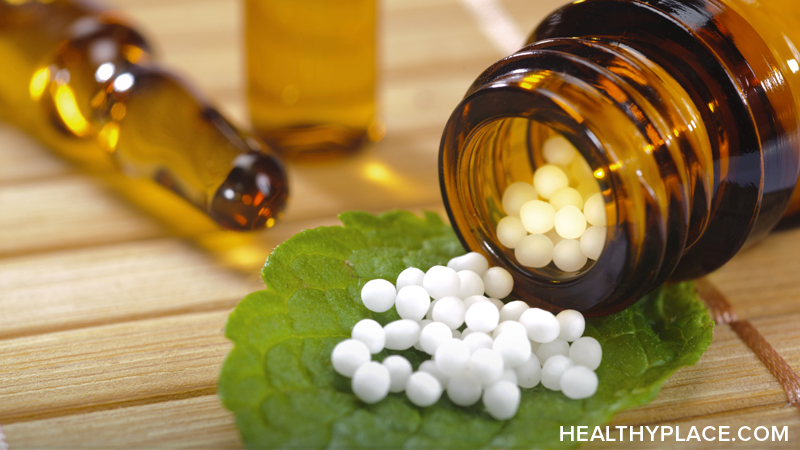Natural, Homeopathic Treatments for Parkinson’s Disease. Really?!

Many people find it hard to believe in natural treatments for Parkinson’s disease, and with good reason. If you have been newly diagnosed, you will likely find information on natural, homeopathic treatment for Parkinson’s disease all over the Internet. But do these treatments work or are they just a scam? Let’s explore the more credible natural treatments for Parkinson’s disease while dispelling some of the myths.
Natural Treatments for Parkinson’s Disease: The Facts
It's important to note that there is currently no cure for Parkinson's disease, natural or otherwise. However, many patients find that medication combined with physical exercise and home remedies help them control their symptoms and live well with the condition. No treatment will stop your Parkinson's disease from progressing. However, homeopathic treatments for Parkinson's disease have been successful at controlling symptoms in many cases.
Here are the facts surrounding natural and homeopathic treatments for Parkinson’s disease:
Diet as a Natural Treatment for Parkinson’s Disease
Eating healthy can be a natural treatment for Parkinson’s disease. While there is no one diet recommended for Parkinson’s disease patients, there are some positive changes you can make to your eating habits to ease your symptoms.
These include:
- Eating more fiber: Constipation is a common symptom of Parkinson’s disease, which is why the Michael J. Fox Foundation for Parkinson’s Research recommends eating plenty of fruits, whole grains and vegetables.
- Drinking 6-8 glasses of water per day: Include a warm drink in the morning to help stimulate bowel movements.
- Consuming more salt: Parkinson's disease can cause low blood pressure, which is why some doctors recommend upping your salt and fluid intake to bring it back up. You should always talk to your medical provider before increasing your salt intake, especially if you have heart or kidney problems.
- Cut out caffeine and alcohol: These encourage dehydration and lower blood pressure.
- Antioxidants: There is some research to suggest that eating foods high in antioxidants – such as apples, dark chocolate, eggs and legumes – can offset some of the cellular damage caused by Parkinson's disease. Again, you should always talk to your doctor before making drastic changes to your diet.
Exercise, Tai Chi as Alternative Treatments for Parkinson’s Disease
Daily exercise is recommended for most Parkinson's patients in the early stages of the disease. Your doctor may refer you to a physical therapist and suggest you take up swimming, yoga or gardening to improve your balance and muscle strength. Physical activity can also help combat the mental health implications of Parkinson's disease, such as anxiety and depression.
Other alternative treatments for Parkinson’s disease include tai chi, yoga, massage, acupuncture and guided meditation. It’s important to remember that none of these natural remedies will cure Parkinson’s, and many are inefficient at combatting symptoms on their own.
Supplements and Homeopathic Treatments for Parkinson’s Disease
There is little evidence that supplements and other homeopathic treatments can help with the symptoms of Parkinson’s disease. In fact, many supplements can have adverse effects when mixed with certain medications. Iron pills, for example, can decrease the absorption of levodopa, a common drug given to Parkinson’s patients. If you must take an iron supplement, your doctor will suggest you space them out to limit their interference with other medications.
Supplements that have been found to improve the general health of those with Parkinson’s disease include:
- Coenzyme Q10: An antioxidant currently being used in clinical trials.
- Creatine: An amino acid that can be used as an energy source for muscles and the brain.
- Vitamins C and E: These are both antioxidants that one study found delayed the need for medication in newly diagnosed patients.
- Curcumin: An antioxidant found in turmeric with anti-inflammatory and anti-cancer properties.
You may also want to ask your doctor about herbal treatments for Parkinson’s disease symptoms, such as depression, insomnia and anxiety. Some Parkinson’s patients find St. Johns Wort to be helpful at easing the non-motor symptoms of the disease.
Treating Parkinson’s Disease Naturally: What You Should Know
It’s important to use good judgment when researching alternative treatments for Parkinson’s disease. As a general rule, you should always avoid any products that claim to cure Parkinson’s disease, whether they are natural or not. There is no scientific evidence that any medication, surgery or natural remedy can get rid of the disease entirely.
Many people think that the word "natural" means a product is safe and won't cause any side-effects, but this isn't always the case. You should always consult your doctor before trying new medications, herbal supplements or homeopathic treatments, as some may interact with your Parkinson's medications or have adverse effects.
Natural remedies can be beneficial when used alongside the right Parkinson's medication and physical therapy plan. However, you shouldn't rely on natural treatments for Parkinson’s disease without guidance from your doctor. Patients with Parkinson’s usually have to take medications to ease the symptoms of their condition, but many of these are gentle with few side-effects – particularly those used in the early stages.
APA Reference
Smith, E.
(2022, January 28). Natural, Homeopathic Treatments for Parkinson’s Disease. Really?!, HealthyPlace. Retrieved
on 2025, December 19 from https://www.healthyplace.com/parkinsons-disease/treatment/natural-homeopathic-treatments-for-parkinsons-disease-really



